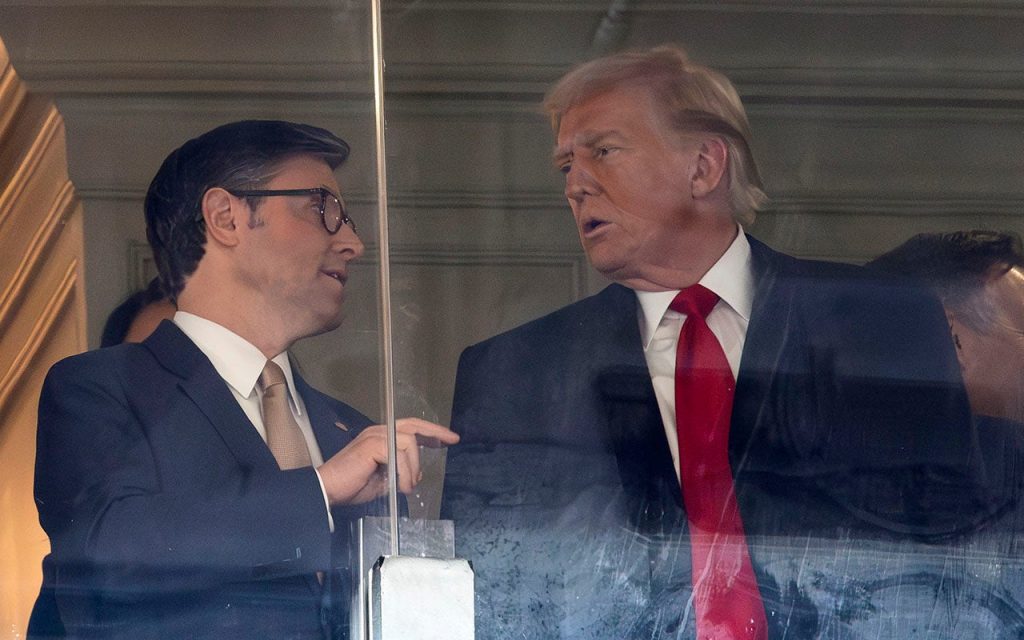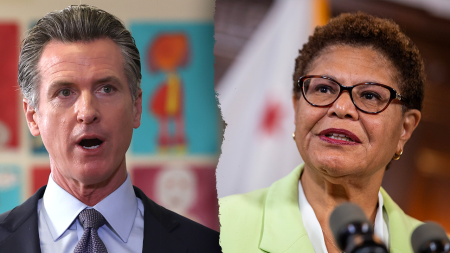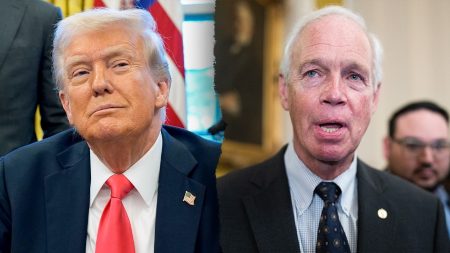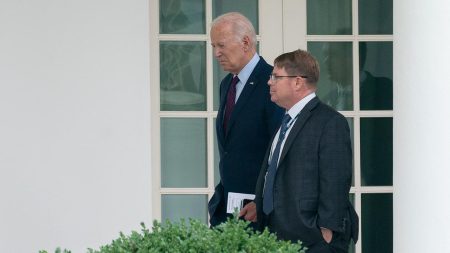Former President Donald Trump has thrown his full support behind Representative Mike Johnson in the upcoming contest for House Speaker, a position expected to be fiercely contested in January. Trump, via his social media platform Truth Social, lauded Johnson as a “good, hard working, religious man” who will “do the right thing,” and urged Republicans to capitalize on the “great opportunity” presented by their narrow House majority. This endorsement comes amidst internal Republican divisions and a challenging legislative landscape, highlighted by recent struggles to pass government funding bills. Trump’s message underscores the importance of party unity for the upcoming speakership vote, emphasizing the need to avoid squandering the gains made in the recent election. He framed the upcoming vote as critical to furthering his agenda and contrasted it with what he perceived as the Democrats’ wasteful campaign spending.
Trump’s endorsement of Johnson reflects the ongoing power struggle within the Republican Party. While Trump remains a highly influential figure, the recent government funding battles reveal fractures within the House GOP, with a significant number of Republicans defying Trump’s preferred spending bill. This internal dissent complicates Johnson’s path to the speakership, potentially requiring him to navigate a divided caucus and negotiate with differing factions to secure the necessary votes. The narrow Republican majority in the House further intensifies the challenge, making every vote crucial and giving greater leverage to smaller groups within the party. The upcoming speaker election serves as a crucial test of Trump’s sway over the Republican Party and his ability to unify the caucus behind his chosen candidate.
The upcoming speaker election is not just a contest for a leadership position; it also carries significant implications for the 2024 presidential election cycle. The speaker plays a crucial role in setting the legislative agenda, influencing policy debates, and shaping the political narrative. A divided and dysfunctional House could hamper the Republican Party’s ability to effectively challenge the Biden administration and advance its policy goals. Furthermore, a protracted and messy speaker election could distract from the 2024 presidential campaign, diverting resources and attention away from the broader electoral strategy. A united Republican front, led by a strong speaker, is essential for the party to maximize its chances of success in the upcoming presidential race.
Trump’s claims of a “flawless” and cost-effective campaign victory, juxtaposed with his criticism of Democratic spending, serve as a rallying cry to his base and an attempt to frame the narrative surrounding the 2024 election. He alleges that Democrats engaged in wasteful spending, citing unsubstantiated claims of exorbitant payments for celebrity endorsements. These accusations, however, have been disputed, with evidence suggesting different figures and purposes for the alleged payments. Regardless of their veracity, these claims serve to reinforce Trump’s populist message and to draw a contrast with what he portrays as the fiscal irresponsibility of the Democratic Party. This rhetoric also aims to galvanize Republican support and position the GOP as the fiscally responsible alternative.
The internal divisions within the Republican Party extend beyond the government funding debate to issues like immigration. Trump’s endorsement of Johnson for Speaker comes at a time when other prominent figures associated with his movement, such as Vivek Ramaswamy and Elon Musk, are advocating for policies that deviate from traditional Republican stances, particularly on H1-B visas for skilled foreign workers. These differing viewpoints within Trump’s own sphere of influence highlight the complexities of navigating the contemporary Republican Party and the challenge of maintaining a unified front on key policy issues. The speaker election will likely serve as a testing ground for these internal debates, with candidates needing to address a diverse range of opinions within the party.
The upcoming speaker election serves as a microcosm of the larger challenges facing the Republican Party. With a narrow House majority, internal divisions on key policy issues, and the looming 2024 presidential election, the party faces a crucial moment of decision. Trump’s endorsement of Johnson represents an attempt to exert his influence and shape the direction of the party. However, the outcome of the speaker election remains uncertain, and the ensuing political landscape will significantly impact both the legislative agenda and the trajectory of the 2024 presidential race. The ability of the Republican Party to navigate these internal divisions and present a united front will be a determining factor in their future success.










